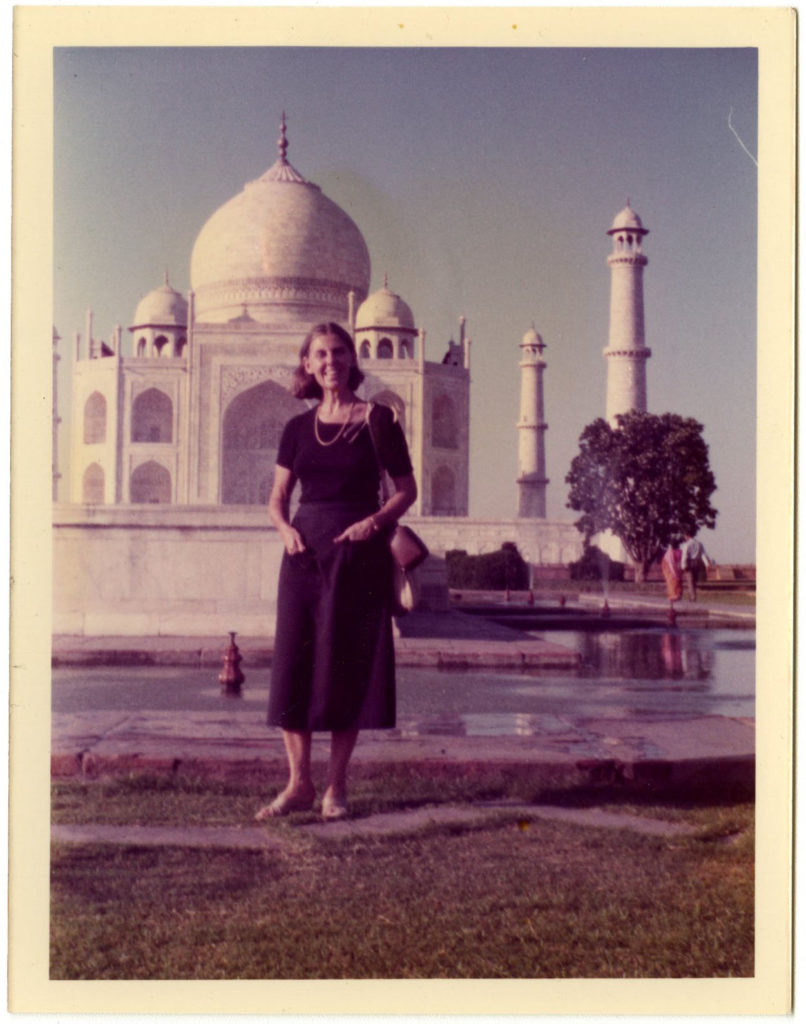In this journal Sybil’s development as a travel writer is seen through her colorful and appreciative language. This journal also shows how Sybil operates outside of the typical western colonialist gaze while also maintaining the identity of a western traveler.
Sybil comes to India with a very interesting Western perspective. She quotes Mark Twain, an American author who described India as the “land of dreams and romance, fabulous wealth and fabulous poverty, and of splendor and rags”. Using a quote from Mark Twain clarifies that this is an outsider perspective of visiting India as opposed to a local voice. This very much is a tourist travel narrative coming from a Westerner. That being said, the quote used speaks to the recognition of the beauty and sorrow within the culture and considers it unique. India is a place that Sybil is interested in not only the beauty but to experience every part of Indian culture.
Upon arriving in Delhi, Sybil visits several tourist destinations such as the Peacock Throne, mosques, and other impressive buildings. What should be noted in the first few pages of this journal is how Sybil is developing as a writer. In this journal we can see Sybil using language that brings a sort of fantasy to her travels. For example, instead of simply stating that her guide took the travel group to visit the Peacock Throne, Sybil instead writes, “guide Avatar Singh and his band of intrepid travelers charged forthrightly into the Diwan-I Khas or Hall of Private Audience.” Using this language adds a degree of fantasy and wonder, shifting the typical travel journal into a travel journey instead.
It is clear in her writing that Sybil had a great appreciation for Indian culture. From Indian history to current politics, dress to food, dance and art, she includes it all with admiring and descriptive language. By putting the culture of India into such a bright and adoring light, Sybil effectively separates herself from the typical colonialism mindset of Orientalism.

Upon arriving in Udaipur, Sybil includes a quote from Indira Gandhi, “If you wish to know something about India you must empty your mind of all preconceived notions. India is different and, exasperating as it may seem, would like to remain so”. This quote works differently from the Mark Twain quote used at the beginning of this journal. Instead of using an outside perspective, Indira Gandhi is not only a native of India but she speaks for India also as its political leader. This quote brings the native perspective into the spotlight. Furthermore, the meaning of this quote directly defies the colonialist ideology of Orientalism by suggesting the only way to experience India is to enter without any ideology of Western supremacy. Using this quote to articulate the correct way to travel in India signifies Sybil’s disconnect with the Orientalist stereotype of western travelers.
One morning in Udaipur, Sybil decides to wake up early and watch the sunrise. While sitting out on a wharf enjoying a cup of coffee, she writes of her surroundings after the beautiful, jewel-like sun has risen. Her surroundings include the local norms of the people of Udaipur: bathers, chants from workers starting their day, and the statue of a woman holding a water jug, “She and I and the pigeons perched on her head were silent, mesmerized.”
While traveling in India, Sybil includes while flying from Udaipur to Jaipur her pilot is none other than Rajiv Gandhi. The son of Indira Gandhi, Indian Prime Minister from 1980-1984, Rajiv Gandhi would rise to the position of Prime Minister in 1984 following the assassination of his mother. Sybil describes Rajiv as “quiet, modest, and handsome” as he walked down the isle of his plane, greeting every passenger. Sybil was able to catch Rajiv Gandhi’s signature in her guidebook, the signature reading, “Rajiv Gandhi, October 8, 1976”.
After arriving in Agra, Sybil describes the historical context and the love story behind the beautiful Taj Mahal. Sybil visited the Taj Mahal both during the day and at night, blown away by its beauty in both settings. “One approaches the Taj Mahal and leaves it in a state of reverent awe.” she writes. After a visit to the Agra Fort and Fatehpur Sikri, Sybil ends her journal including a quote that claims the two locations are great cities, much greater than London.
